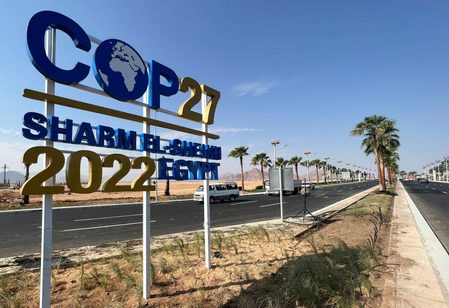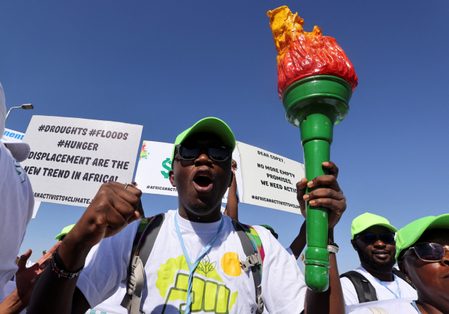SUMMARY
This is AI generated summarization, which may have errors. For context, always refer to the full article.
![[OPINION] An urgent message from a young Filipina at COP27](https://www.rappler.com/tachyon/2022/11/Youth-and-Future-Generations-Day-Fighting-a-Fossil-Future-at-COP-27.jpg)
I write this at COP27, the United Nations Climate Conference, where governments, businesses, non-governmental organizations, civil society, and people from across the world gather to talk about (and hopefully also act on) a crisis we are unfortunately all too familiar with.
Very recently, Severe Tropical Storm Nalgae, locally known as Paeng, made landfall in the Philippines. I found myself stranded for four days on an unfamiliar island, traveling alone, desperately calling for any form of help or rescue on my dying phone. Fortunately, I was able to get out. Thousands of others are not so lucky.
Like clockwork, climate-related disasters claim ruin to vulnerable countries like ours every single year. How many storms will it take until we see this crisis in sharp clarity, and do something about it?
The world is in a state of climate emergency. Intergovernmental reports are saying that global temperatures are on the brink of passing the point of no return. Science is saying this environmental crisis is one that humanity might not be able to survive.
The past years of UN Climate Negotiations, especially since the historical Paris Agreement, have been focused on discussions of keeping global temperatures below 1.5 degrees Celsius to avoid global collapse. Getting state parties to commit to the Agreement and actually make radical changes — such as shutting down fossil fuel industries like gas, in order to meet the warming limit — is another story entirely.
In this year’s conference, the so-called the “Implementation COP,” we hear delegates brazenly speak of their plans to continue drilling oil and gas in their own countries, deliberately ignoring the fact that any new oil and gas fields will drive us beyond 1.5C. While disappointing, this development is not unfamiliar. This Convention has been happening for 27 years, longer than I have been alive, and no real progress has come out of it.
The real progress I have seen is from growing movements from all over the world, proving that real change is possible, especially when leadership comes from those at the margins most affected by the crisis. We have seen communities building resistance against fossil fuels, indigenous peoples defending their lands, and young people fighting for future generations — and we have seen them win.
I have seen it happen with my own eyes. Young people from our community came together and worked with activists, religious groups, women, and workers, and were able to stop a coal plant from being built on our island in 2018. We realized we weren’t “too young” to do something.
Today, our community is being threatened by another fossil fuel in the form of a fossil gas power plant. San Miguel Corporation is building a 300 MW liquefied natural gas plant in San Carlos City, one of the cleanest and greenest cities in our province. While we have been successful in intervening and delaying the project during its application process, it is only the tip of the iceberg of the massive fossil gas expansion planned for the Philippines. Verde Island Passage in Batangas, dubbed as the “Amazon of the Oceans” because of its biodiversity, is at the heart of this gas expansion, facing a new threat in the form of one of the biggest polluters, Shell.
As of writing, it’s only been a few days of the climate negotiations here in Egypt, and despite our hopes for its success, discussions of new oil and gas spell out business as usual. But there is comfort in knowing that climate justice will not be achieved in these negotiation halls.
If I have learned anything from my community and the leadership of grassroots movements from around the globe, it is that the historical roots of the climate crisis dictate that this cannot be viewed in isolation. This crisis is rooted in the exploitation of our lands and the violation of our basic rights, and fighting for climate justice means addressing its capitalist, imperialist, colonial, and patriarchal roots. It is not as simple as lowering emissions, and it requires all of us to work together.
This never-ending crisis demands an immediate change in every aspect of society — a challenge that seems daunting and impossible, but not for a generation speaking truths, unafraid of doing what is necessary for survival. Young people are here in the negotiation halls, in protests, and in actions. Young people have been at the forefront and the intersections of the movement for justice, and my fellow youth have taught me that changing the world is not only necessary. It is possible. – Rappler.com
Krishna Ariola is a CEED youth campaigner, youth climate activist, and co-founder of Youth for Climate Hope (Y4CH).
Add a comment
How does this make you feel?












There are no comments yet. Add your comment to start the conversation.